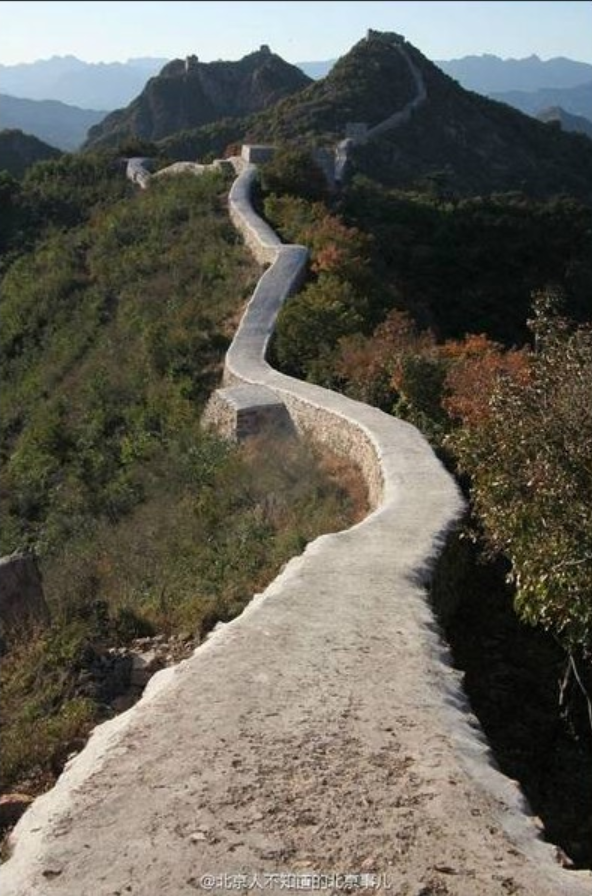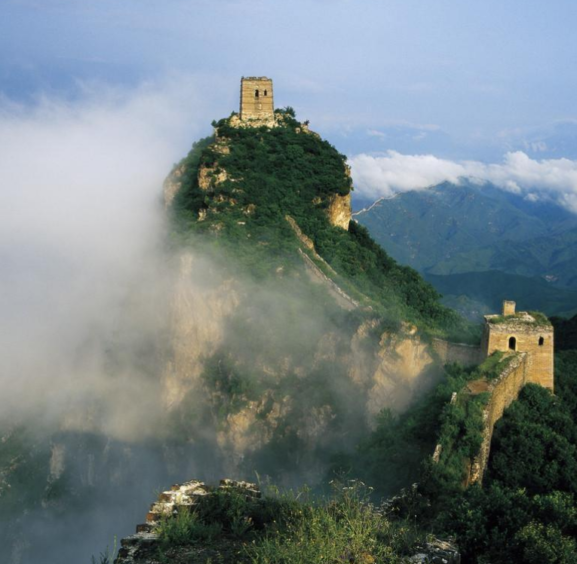Recent news out of China
The FT reports that the yuan became an official reserve currency today. The recent depreciation of the yuan has become a non-issue:
But Chen Long, China economist at Gavekal Dragonomics, notes that for most investors — and even the US government — the PBoC’s “gradual and managed depreciation of the renminbi is a non-story right now”.
I’m really glad that yuan depreciation no longer affects markets, because I never understood why the sudden drop of a few percent in the summer of 2015 caused such a strong market reaction.
The FT has a story about how China is changing:
Now China’s new rich, having made waves buying luxury watches, holidays and art, are looking to upgrade their domestic staff from ayi, the local nannies and cleaners, to the educated Filipino helpers.
Apart from bestowing prestige for employing foreign maids at home, Filipinos often teach the children better English. However, unlike Hong Kong and Singapore, China bans the hiring of overseas nationals for private domestic service.That has spawned a growing underground trade in big mainland cities. Almost 200,000 undocumented Filipinos are working as maids in China, according to latest estimates by the Philippine consulate-general in Hong Kong. More than 100 agencies are listed on the website of the China Filipino DH Association, which says it helps find Filipino helpers across the country.
I recall reading that after WWII, the Philippines was the second richest country in East Asia. Women from Hong Kong would go to the Philippines to work as maids. A few decades later Filipino women were working as maids in Hong Kong. And now Mainland China? How times have changed. Filipinos are incredibly productive people, as long as they are outside the Philippines.
And another FT story, on the growing Mao cult in China. This made me shake my head:
In 1957, Mao said “the question of which will win out, socialism or capitalism, is still not really settled”. Today this question has been comprehensively settled in favour of the latter in his home town, and throughout the country. In a Mao memorabilia shop in Shaoshan, the 53-year-old proprietor Zhou Guanghua speaks of Mao fondly but also remembers when all private enterprise was completely banned and people struggled to feed themselves.
“When I tell my 20-year-old son that we had no rice to eat when I was young, he asks why we didn’t eat meat instead,” says Zhou. “The country today is so much richer and young people have no idea what it was like when Mao was in charge.”
It would be sort of like young Americans having no knowledge that slavery had occurred. Don’t Chinese parents tell their kids, “eat your vegetables, when I was young everyone was starving to death”?
CNN entitled its story “The World’s Worst Restoration? China’s Great Wall covered in cement.”
 I still have fond memories of visiting the Great Wall at Simatai back in the mid-1990s, before the tourists arrived:
I still have fond memories of visiting the Great Wall at Simatai back in the mid-1990s, before the tourists arrived:
Tags:



1. October 2016 at 16:08
“Filipinos are incredibly productive people, as long as they are outside the Philippines.”
Is that due to migrant self-selection, or do you mean Filipinos share some cultural trait that makes them productive? But if country economic success is about culture, as you often say it is (and which I agree), then perhaps Filipinos as group are not *that* productive.
The article refers to some of the appealing features of Filipino maids – better English skills, higher education levels and the prestige of just being foreign. Completely speculative, as I have never been there, but I wonder if another appealing characteristic is the Latin and American cultural influences. Filipinos might be more tuned in to American ways and have more gregarious and extroverted personalities (like both American and Latin cultures) than most East Asian cultures. That might make Chinese parents feel that their kids will be better able to adapt to the increasing Americanisation of the world and thus be more productive and better-paid down the track.
As for the Great Wall, that looks like a decision made for OHS reasons in Australian parlance (occupational health & safety)!
1. October 2016 at 18:24
Interesting post here. Quite a difference in cultures. I wonder if a lot of Asian cultures are like this, in covering up the past quickly. I was watching a TV program about the chef Anthony Bourdain traveling in Vietnam. Most of their people are now under 30 and don’t remember, or know much about, what is called there the American War. Perhaps Americans are only a bit more historically conscious, as not too much recent history is known by younger people here.
Like Rajat, I too was curious about the statement “Filipinos are incredibly productive people, as long as they are outside the Philippines.”
I think some of it may be migrant self-selection. But I wonder if some of the characteristics or circumstances of Filipino life might hold back people who would otherwise be more productive e.g. biological effects of the pollution, the effects of crowding and perhaps a lack of opportunities for advancement within the economy of the Philippines. Sometimes in crowded places, human life is treated as cheap, hard work is not rewarded and it does not result in advancement.
1. October 2016 at 19:04
Rajat and Jill, Many ethnic groups are productive when in countries they do not rule. There’s a difference between being productive at an individual level, and have a culture that leads to good governance. Think of all the groups that have cultures that produce bad governance, but as soon as they come to America they do great. I.e. southern Italians.
1. October 2016 at 20:00
Scott,
“I recall reading that after WWII, the Philippines was the second richest country in East Asia. Women from Hong Kong would go to the Philippines to work as maids. ”
My wife says the same thing – and combine this with the fact that these Chinese immigrants are now economically dominant in the Philippines, you have a true puzzle.
Rajat,
if I had to speculate… It’s not the Latin American influence (none here) – it’s the direct shared experience. Like Latin America, the Philippines had 400 years of Spanish colonialism. That gets them all the advantages (social mores etc) and all the disadvantages (latifundismo, clan dominated politics) from that. The US colonialism in the first half of the 2oth Century, as brutal as it started, may have done a lot to add major skills here too. Filipino English proficiency of foreign workers is vastly better than any other country’s in the region. Then there’s the cultural thing – it’s really closer to the US than any other SE Asian country. From open gun culture to gay and transgender visibility, it’s all more Western than their neighborhood.
So, the popularity of Filipinos abroad is due to high education levels, great English, Western mindset (VERY different from any SE Asian country, not to mention true East Asians such as China, Japan, Korea), and yea, maybe a bit of self selection too. BTW it’s not just maids – tons of Filipino aircraft engineers from Singapore to Dubai, the music scene is full of them, my own economist wife, what have you.
So the mystery is a true mystery – why doesn’t it work out in the Philippines. Again if I had to guess, my no. 1 culprit would be, clan dominated politics and distribution issues inherited from the Spanish.
2. October 2016 at 02:46
Racism by Scott, Rajat, mbka noted. FYI, mbka, the British set up the Chinese as their ‘overlords’ in most of their SE Asia colonies, hence the Chinese got a head start on others, hence they are richer today.
As for Filipinos being friendly, I find they are about the same as all other SE Asians with the important difference they speak English, unlike in Thailand, so it’s easier to communicate as an American.
2. October 2016 at 05:23
Lopez,
just for the record, racism is when people assign qualities to other people based on a perceived shared ethnicity. What was written above your post assigned qualities to people based on perceived differences in education, colonial past etc, in other words, cultural and historical differences. And as a result, it wasn’t racist.
The Chinese installed as ‘overlords’ in SE Asian colonies by the British? Seriously. Such as, the Chinese who came to Malaysia for the tin mines? And the like? Not to mention this totally explains why the Chinese maids in the Philippines (no British here) were shop owners a generation later. Sure. World history made easy.
2. October 2016 at 05:48
Mbka, Good comment. It’s kind of amusing to see Ray try to debate with you.
2. October 2016 at 11:53
Mbka – what I said about UK Chinese in SE Asia is not controversial, but the conventional wisdom.
@all – why are the Philippines poor? One reason is oligopolies: the vast majority of land and business is run by a handful of tycoons (it is said “fifty leading families control all of SE Asia”). In Peru, it’s been reported that as late as 1980 a mere 400 owners owned 50% of all private land.
2. October 2016 at 11:55
…and what is true in Peru is true also in PH. The San Mig guy owns a lot of land, as do a handful of Filipino tycoons. That’s one reason the Maoist “New People’s Army” is popular in PH, as they favor land redistribution (and perhaps why the Maoist “Shining Path” was popular in Peru? Do Maoists like to give away private land? Seems so)
2. October 2016 at 15:49
Filipinos are incredibly productive people, as long as they are outside the Philippines.
Let’s assume this is true then the first causes that come to mind are simple selection effects. Selection effects regarding the migrants itself but maybe even more so regarding countries like the US that actually have a reasonable (highly selective) immigration regime.
3. October 2016 at 09:33
Christian, You said:
“Let’s assume this is true then the first causes that come to mind are simple selection effects.”
I suppose that would also be your explanation for why Koreans in the North are poorer than those in the South.
3. October 2016 at 14:07
I suppose that would also be your explanation for why Koreans in the North are poorer than those in the South.
You suppose wrong. You know exactly why selection effects might play a huge role in my example but not in yours. Nevertheless you look for contradictions where they aren’t any. In your most recent blog entry you called this behaviour being a troll, which might be quite accurate. So don’t be a troll, please.
But to meet you halfway: I guess in the first example both effects might play an important role. The selection effects I mentioned and the effects you mentioned.
6. October 2016 at 19:00
Even assuming strong selection, it begs the question of why the high performers moved to a given area, as opposed to simply outperforming at home.